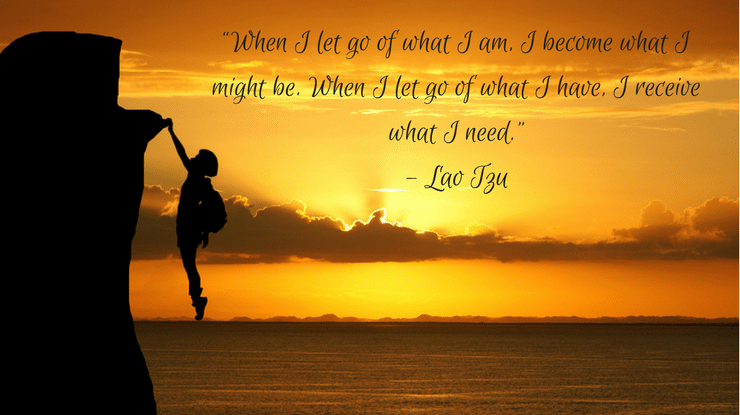There’s a story about an experienced mountain climber who trips, falls and is clinging to the side of a ledge.
“Help me, God,” she cries. Then she hears a voice:
“I’ll help you Sadie, but first must do one thing,”
“I’ll do anything,” she cries.
And the voice replies, “You gotta’ let go of the ledge.”
That’s what adversity continually calls us to do: Let go of what is holding us back. If you’re struggling with a seemingly insoluble problem, ask yourself, right now: What do I need to release? And see what comes up.
It may be something tangible, like a job, a relationship, a geographic location. Or it could be an attitude, belief or emotion, like anger, fear, or self-doubt.
I promise you one thing: it’ll probably be what you’re most afraid to give up.
Why is this important? Because letting go creates space for something new to enter.
What do you suspect you need to let go of? Share in the comments.
Wondering where to begin on Your Path to Prosperity? Take this short quiz to find out. Click here.











